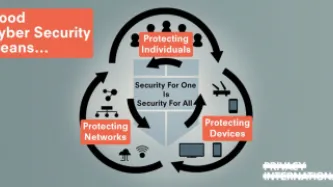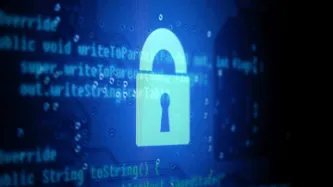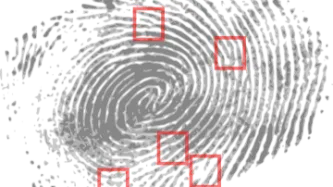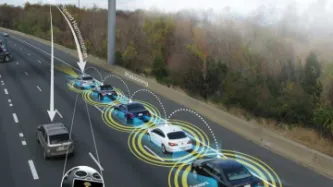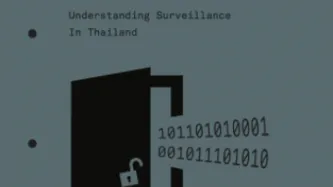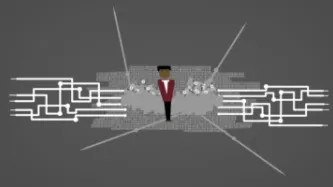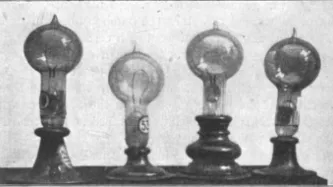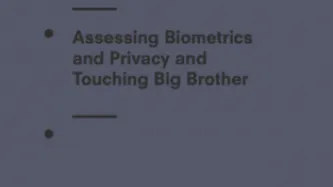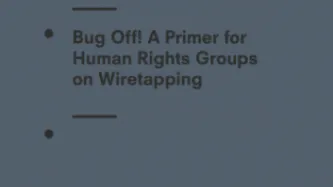Advanced Search
Content Type: Report
When you rent a car at the airport, use a car-share for a family day trip, one of the first things you are likely to do before setting off on your journey, is to connect your phone to the car. You switch on the Bluetooth and see a list of other people’s phones that were previously connected - Mike’s iPhone, Samsung Galaxy, Bikerboy_Troi, Dee Dee. You input your journey into the navigation, perhaps noticing stored locations of previous drivers.
Seems fairly innocuous? Wrong. Your name and…
Content Type: Press release
Press Release: New report shows how car rental companies are failing to protect drivers' information
A new report by Privacy International shows how car rental companies and car-share schemes are failing to protect drivers' personal information, such as their location, smart phone contents, and place of residence.
The report is here: https://privacyinternational.org/node/987
Key points
Privacy International (PI) rented a series of internet-connected cars and examined the information which was collected and retained on the rental cars' infotainment system*. Every car PI rented…
Content Type: News & Analysis
There are three good reasons why security is so hard for NGOs. First, we are afraid to speak about meaningful security. Second, we focus on the wrong areas of security and in turn spend money and prioritise the wrong things. Third, we struggle to separate the world we want from the worlds we build within our own organisations. At PI we have failed and struggled with each of these for over 20 years. Out of exhaustion, we decided to do something about it: we are building an open framework, a…
Content Type: News & Analysis
This is the story of Privacy International's journey to building more secure services. Data collection and administering sensitive data on the open web is risky, and PI had to learn this the hard way.
Many companies say that the privacy of their audiences is their top priority. But do they mean it? Do they invest in it? Doing security on tight budgets is incredibly hard. But it is the natural state of the non-profit sector. We learned this through challenging experiences.…
Content Type: News & Analysis
The short answer is yes.
I'm sure many of you have seen people with stickers over their webcams and wondered why (probably writing that person off as paranoid). But it's well known in tech circles that a camera in a computer or smartphone can be turned on remotely by an attacker with the resources, time, and motivation.
Security is hard, and our defences are weak. The capability of an adversary to attack your devices doesn't necessarily hinge upon a consumer choice of…
Content Type: News & Analysis
This guest piece was written by Leandro Ucciferri of the Association for Civil Rights (Asociación por los Derechos Civiles). It does not necessarily reflect the views or position of Privacy International.
We look at our smartphone first thing in the morning to check the weather, and our to-do list for the day. During breakfast, we read the news and learn about what is going on in the rest of the world. In our commute to work or college, we scroll through our social media feeds…
Content Type: News & Analysis
Why would we ever let anyone hack anything, ever? Why are hacking tools that can patently be used for harm considered helpful? Let's try to address this in eight distinct points:
1) Ethical hacking is a counter proof to corporate claims of security.
Companies make products and claim they are secure, or privacy preserving. An ethical hack shows they are not. Ethical hackers produce counter-proofs to government or corporate claims of security, and thus defend us, piece by tiny…
Content Type: News & Analysis
For as long as automobiles have been around, manufacturers have been trying to find ways of putting more technology inside of cars, oftentimes sold as value-added services for their customers, whether that be 8-tracks of the 1960s and 1970s, the enhancement to security of central locking of the 1980s and 1990s, or the introduction of satellite navigation in the 2000s.
Today, as our technologies become ‘smarter’, so do the risks to our personal privacy. This especially true as society is on the…
Content Type: News & Analysis
Technologists hoped the “Crypto Wars” of the 1990s – which ended with cryptographers gaining the right to legally develop strong encryption that governments could not break – was behind them once and for all. Encryption is a fundamental part of our modern life, heavily relied on by everything from online banking and online shopping services to the security our energy infrastructure.
However, from comments by the French and German governments about creating a European initiative to circumvent…
Content Type: Report
This investigation looks at how surveillance is being conducted in Thailand. The first part of the investigation focuses on the ties between telecommunication companies and the state, and the second part of the investigation focuses on attacks conducted in order to attempt to circumvent encryption.
Content Type: Long Read
Tech firms and governments are keen to use algorithms and AI, everywhere. We urgently need to understand what algorithms, intelligence, and machine learning actually are so that we can disentangle the optimism from the hype. It will also ensure that we come up with meaningful responses and ultimately protections and safeguards.
Many technologists emerge from University, College or graduate courses with the impression that technology is neutral and believe that all systems they apply their…
Content Type: News & Analysis
The connectivity afforded by the internet has changed the world forever. While the increasing ‘corporatization’ of what many still feel is an open, non-hierarchical, largely uncensored and unfiltered ecosystem, this is increasingly not the case. The emergence of the ‘Internet of Things’ will soon throw into sharp relief who owns the internet and who owns the data we all generate when using the internet. Companies today have a vested interest in portraying their products as safe and…
Content Type: News & Analysis
As of October 1st, it has become impossible for the public to see footage from North Carolina police body cameras as a result of new law HB 972. This should be of concern to anyone who cares about police accountability and the balance of power in the new digital surveillance era. Increasingly, we are seeing law enforcement use new technology to respond not only to unrest and crime but also to collect and monitor data about individuals who are not suspected of any criminal involvement, such as…
Content Type: News & Analysis
Privacy can be seen as a reflex of innovation. One of the seminal pieces on the right to privacy as the 'right to be let alone emerged in response to the camera and its use by the tabloid media. Seminal jurisprudence is in response to new surveillance innovations... though often with significant delays.
While one approach would be to say that privacy is a norm and that with modern technologies the norm must be reconsidered and if necessary, abandoned; I think there’s an interesting idea around…
Content Type: Report
The evolution of information technology is likely to result in intimate interdependence between humans and technology. This fusion has been characterized in popular science fiction as chip implantation. It is, however, more likely to take the form of biometric identification using such technologies as fingerprints, hand geometry and retina scanning.
Some applications of biometric identification technology are now cost-effective, reliable, and highly accurate. As a result, biometric systems are…
Content Type: Report
The explosion of telecommunications services has improved the ability for human rights groups to disseminate information worldwide. New telephone, facsimile and computer communications have created opportunities for human rights groups to improve organizing and to promote human rights faster and at a lower cost than ever before. However, these new technologies can be monitored by governments and other groups seeking to monitor the activities of human rights advocates. For this reason, human…


